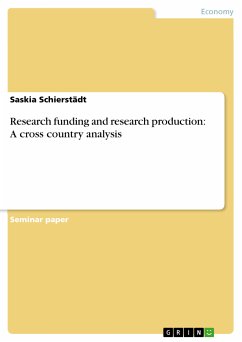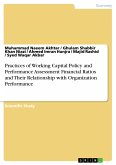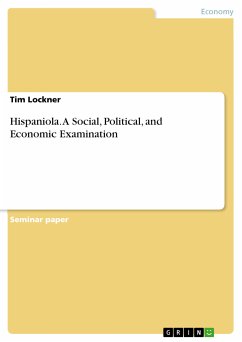Seminar paper from the year 2006 in the subject Economics - Case Scenarios, University of Constance, course: Seminar "Economics of Science", language: English, abstract: Productivity can refer to different scientific fields. In economics, productivity is the amount of output created per unit input used. In corporate finance productivity is defined by the current year's sales to expense ratio over the previous year's sales to expense ratio. In linguistics, the degree to which a grammatical process can be extended to new cases is meant, whereas Social Productivity is the ratio of the volume of a group's collaborative output produced per unit input (e.g. time) used. In any case an increase of productivity is useful. In economics an increase of productivity reduces the costs or rises the benefits, respectively. Therefore it is interesting to examine the existing differences in order to improve the productivity. The paper by Crespi and Geuna headlined "The productivity of UK universities" also deals with this topic. They analysed the determinants of the three most common university research outputs, among others publications as well. For these publications for example they estimated significantly different lag structures, which means that the science system does not respond uniformly to changes in funds. I'll expand on their work and their final results in chapter 2. Research funding as well as research production differ among the different European countries. Furthermore the productivity regarding the research activity differs, too. In chapter 3 I'll compare some European countries regarding their research activity and their efficiency. The idea is to find out which factors cause the differences in their productivity in order to describe how countries with a lower productivity could improve their performance. Using the R&D expenditure as input factor and the scientific publication as output I'll examine if Learning-by-Doing (LbD) or path dependence play a crucial role concerning this question. Furthermore I'll try to find out whether some other factors that influence the relation between input and output or if time lags can be found. At first sight LbD doesn't seem to be a satisfying solution, as short run changes are impossible. But at least it shows, that the difference doesn't result from any mistakes. Instead it reveals out that it will simply take some time to improve productivity. Path dependency as a solution would mean, one could check if it can be reversed by calculating the switching costs. But in fact, path dependent processes are often irreversible.
Dieser Download kann aus rechtlichen Gründen nur mit Rechnungsadresse in A, B, BG, CY, CZ, D, DK, EW, E, FIN, F, GR, HR, H, IRL, I, LT, L, LR, M, NL, PL, P, R, S, SLO, SK ausgeliefert werden.









